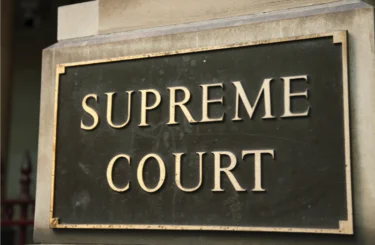Supreme Court Rules Plaintiffs in Consumer Class Actions Must Show Actual Harm
In a 6-2 opinion, the U.S. Supreme Court has ruled consumers bringing class actions must show evidence of actual harm in order for a case to proceed. The May 16 ruling in Spokeo Inc. v. Thomas Robins et al means that a consumer class action must be based on a concrete, specific injury.
The case involved Spokeo, a website that aggregates data from across the internet to create profiles of individuals. Thomas Robins launched a class action suit against Spokeo alleging much of his profile was inaccurate, including details that he was a well-off married man with a graduate degree and children. In his suit, Robins claimed Spokeo violated the Fair Credit Reporting Act (FCRA) because the false information could potentially harm his ability to find work.
A lower court originally ruled Robins did not have standing to sue because there was no evidence the Spokeo profile directly harmed his employment prospects. On appeal, the Ninth Circuit overturned the lower court, saying an alleged violation of the FCRA was an injury and, therefore, a cause of action for Robins. Spokeo appealed to the U.S. Supreme Court.
In its May 16 ruling, the Supreme Court found Robins had to show he was actually harmed by the incorrect information listed by Spokeo. In writing the majority opinion, Justice Samuel Alito wrote “We have made it clear time and time again that an injury in fact must be both concrete and particularized.” The court remanded the case back to the Ninth Circuit so it could reassess whether Robins’ claim of injury was both concrete and particularized — the two aspects of the injury-in-fact requirement consumer plaintiffs must meet to bring a class action.
It is important to note that the Supreme Court did not rule on whether or not Robins could have been harmed by the Spokeo profile. The court merely clarified that consumers must demonstrate actual harm in order to bring a class action suit.
Kevin J. Stoops
Kevin Stoops is an experienced trial attorney who appears frequently in Michigan state courts and federal courts across the United States, representing clients in complex business litigation. He has vast experience and a track record of successful outcomes high-dollar matters involving trade secret, business tort, intellectual property, executive employment, and class action claims.





